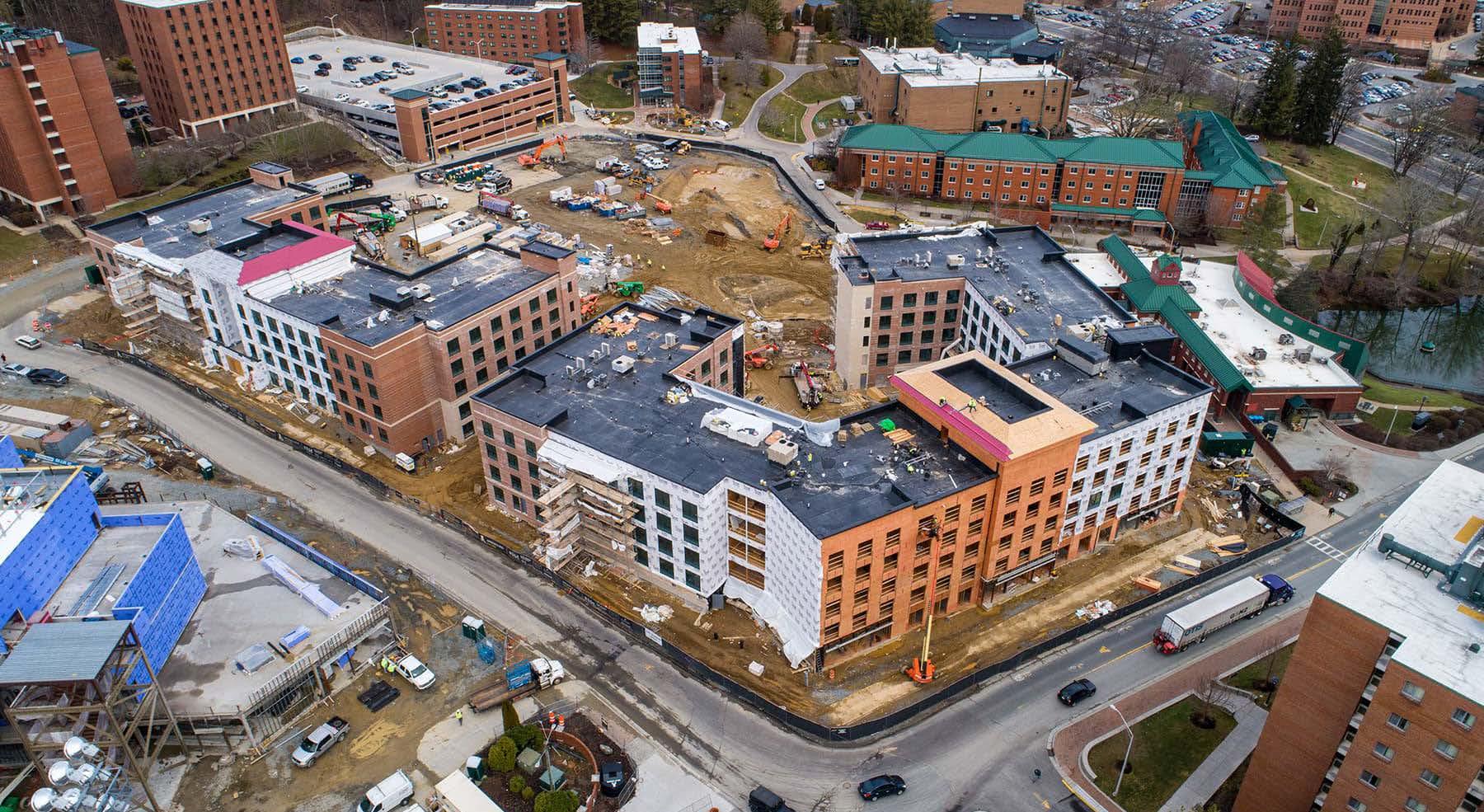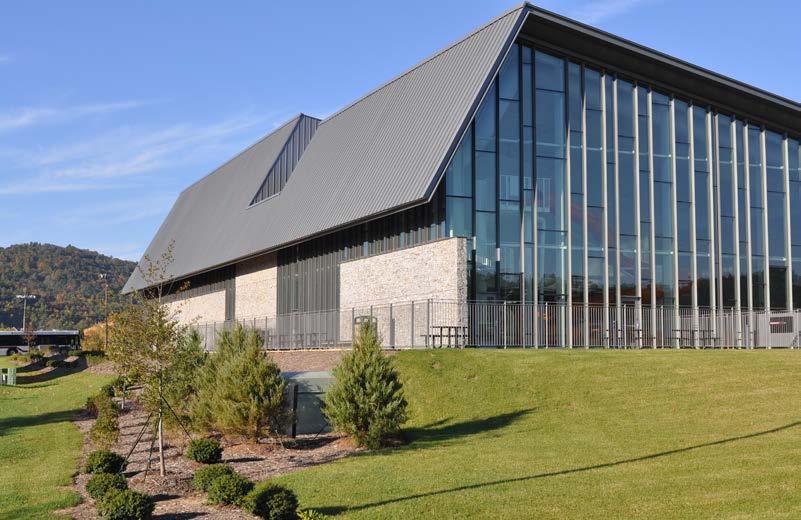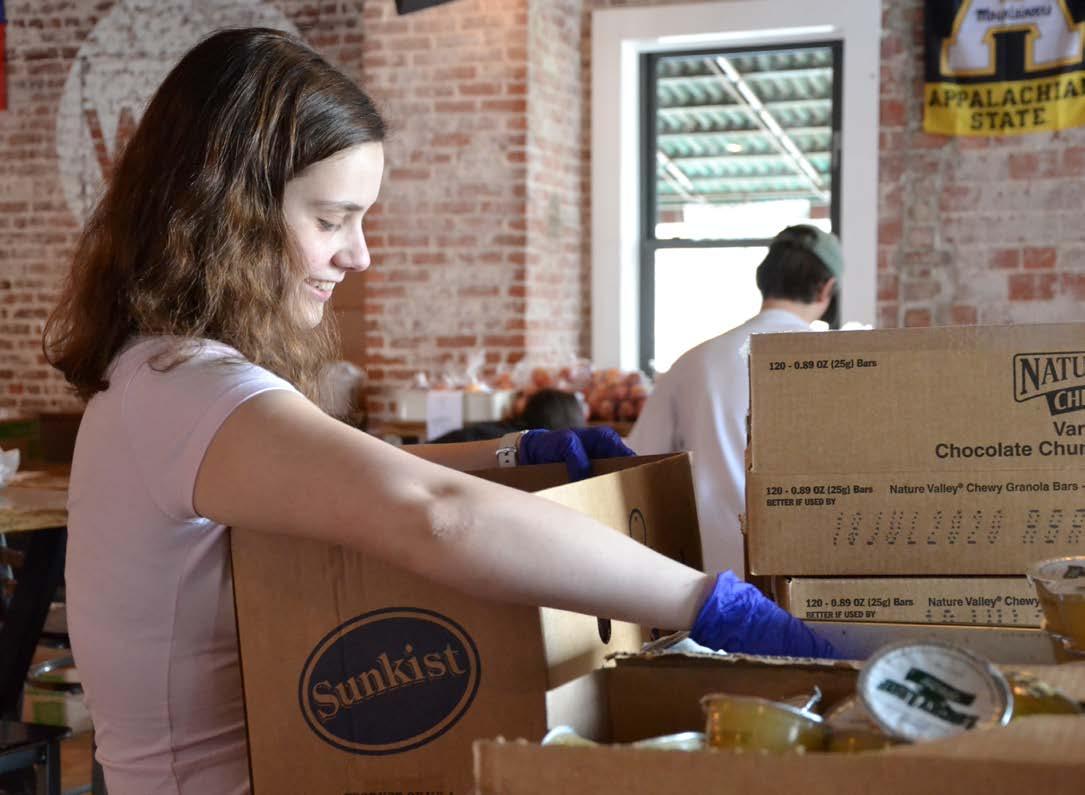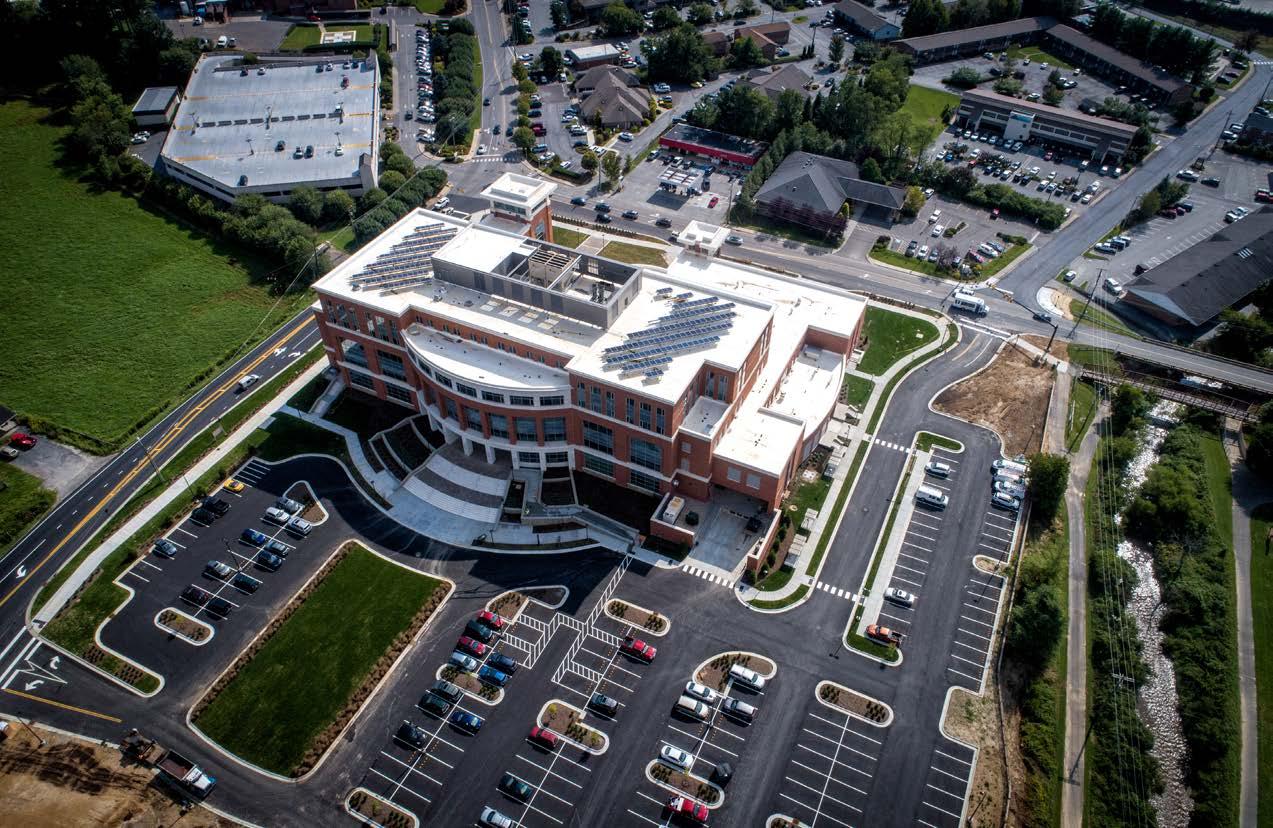
4 minute read
You Can Bank on Boone
PHOTO PROVIDED BY THE BOONE AREA CHAMBER OF COMMERCE Several Boone and Rivers Walk project principals take part in a groundbreaking on March 19, 2019. From left to right: Boone Town Manager John Ward, Keith Harrod of Harrod and Associates, Boone Town Councilwoman Connie Ulmer, project manager Michael Goodson, Boone Area Chamber of Commerce President David Jackson, Boone Mayor Rennie Brantz, Drucker and Falk’s Nina Wright-Richie, multifamily director with Drucker and Falk Lisa Price and business developer John Cheshire. You Can Bank on Boone
Growth, Quality of Life Key to Strong Business Environment
Anchored by a university and bolstered by student, tourist and second homeowner markets as well as a strong local health care system, Boone’s economy is strongly positioned among Western North Carolina communities.
Watauga County’s population has grown by an estimated 10 percent from 2010 to 2019, according to the U.S. Census Bureau, and the county’s unemployment rate is consistently lower than the state and national averages.
The county’s largest employer is Appalachian State University,
BY ANNA OAKES
with more than 3,300 full- and part-time employees. In addition, the university’s construction spending and the spending of its students, visitors and alumni create additional revenue for the region.
The university also contributes to an educated workforce: 41.6 percent of residents in Watauga County are college graduates, according to the U.S. Census. And businesses have the opportunity to take advantage of university expertise and services in diverse subjects such as information technologies, sustainable development, business management, entrepreneurship and planning.
Tourism and year-round outdoor recreation opportunities are strong drivers of the local economy. Visitors to Watauga County spent an estimated $284.73 million in 2019, according to Visit NC, ranking 18th among North Carolina’s 100 counties. Travel and tourism directly support 2,970 jobs in Watauga County.
The health sector continues to grow in the Boone area, which is the headquarters of the Appalachian Regional Healthcare System — the county’s second largest employer.
Watauga Medical Center continues to expand its facilities and services so that more high-quality treatments and procedures are available in Boone, and the hospital is planning a $72.9 million expansion that will house new surgical areas, new patient rooms and other facilities.
The investments in new facilities and new programs in the education and health care sectors are attractive to potential employers, Boone Area Chamber of Commerce President and CEO David Jackson said.
“We’ve heard from businesses for decades that they’ll invest in a community that invests in itself,” Jackson said.
From independent restaurants
PHOTO BY MARIE FREEMAN Pictured in March 2020 is the construction site for three residence halls: Thunder Hill Hall (Building 100) and Raven Rocks Hall (Building 200), which were both nearly dried in, and Laurel Creek Hall (Building 300), top center, where site work was just beginning.

GROWTH
CONTINUED FROM PAGE 14
to boutique stores, mom and pop enterprises and niche services, Watauga County supports a healthy small business community. In fact, a 2020 study by SmartAsset, a personal finance research firm, ranked Watauga County third among the state’s 100 counties as the “Best Places for Small Business Owners,” based on the proportion of people in a county with small business income, how much
GLANCE
CONTINUED FROM PAGE 12 arts, as well as commerce, with diverse businesses, restaurants, shops and boutiques.
One of the town’s greatest amenities is the AppalCART transit service, which provides business income those people reported and the amount of tax a potential resident must pay on their income.
The “buy local” movement is strong in Boone, with small businesses that support and cheer for each other. Farming and agriculture are important to Watauga County, which has a vibrant weekly farmers’ market and multiple restaurants that offer “farm to table” dishes and locally sourced ingredients. Christmas trees, cattle, nursery products and vegetables are the top commodities. free transportation around town, with additional routes in the county available for a small fee.
Appalachian State University — one of the largest universities in the public University of North Carolina system — provides amenities and economic benefits comparable to those in a much
Many are drawn to Watauga County for its excellent public school system, which includes eight K-8 schools and one county high school. The community is actively focused on strengthening early childhood education, with the number of pre-K programs continuing to increase as well as a new fundraising campaign to improve the quality and availability of early child care in the county.
And the area real estate market is booming, as property in a growing, scenic and dynamic mountain town continues to be a prized investment. larger city. And the town is actively supportive of the local agricultural sector, with farmers markets and retailers that provide year-round access to locally grown and raised produce and products.
According to the N.C. State Bureau of Investigation, Watauga County and Boone have much
While Boone and the university continue to grow, local leaders understand the importance of keeping the same charm that drew people here in the first place.
“As we’re talking about growth and enhancing what we have here, we’re not mortgaging away the character of our community,” Jackson said. “People see this as great small town atmosphere. We must continue to stay committed to make sure we’re having the right conversations and promote growth in the safest way
possible.” lower crime rates than other areas in North Carolina. Watauga County’s 2018 index crime rate of 1,184.1 per 100,000 people is significantly lower than the state average rate of 2,763.2 per 100,000, as is the violent crime rate — 62.2 per 100,000 in Watauga compared to the state average of 356.6 per 100,000.










